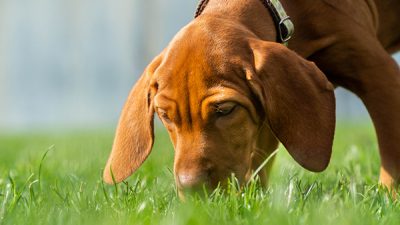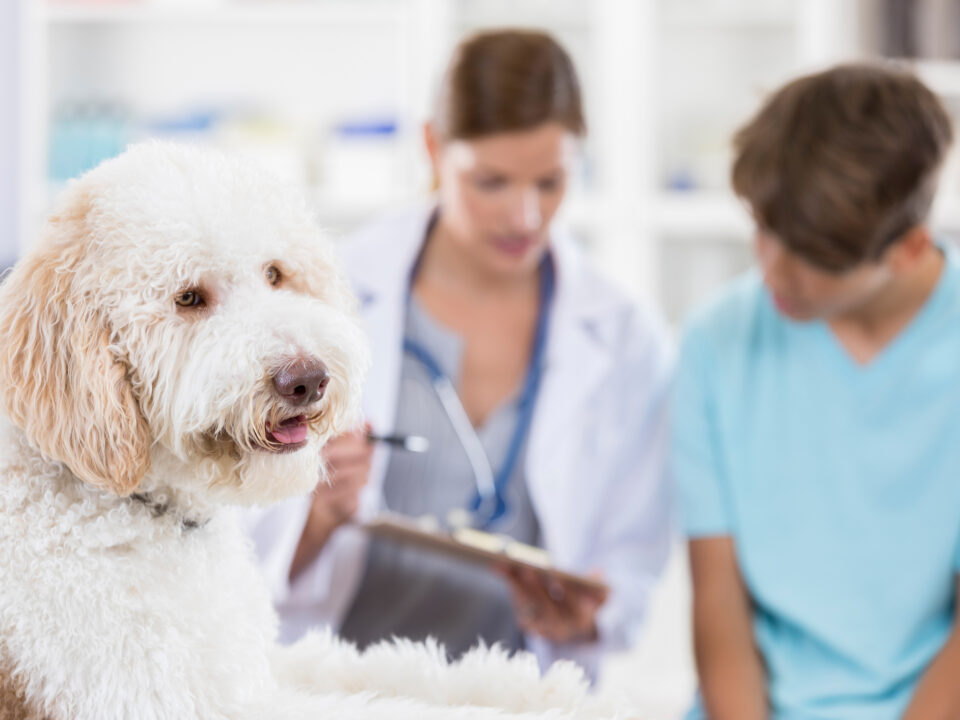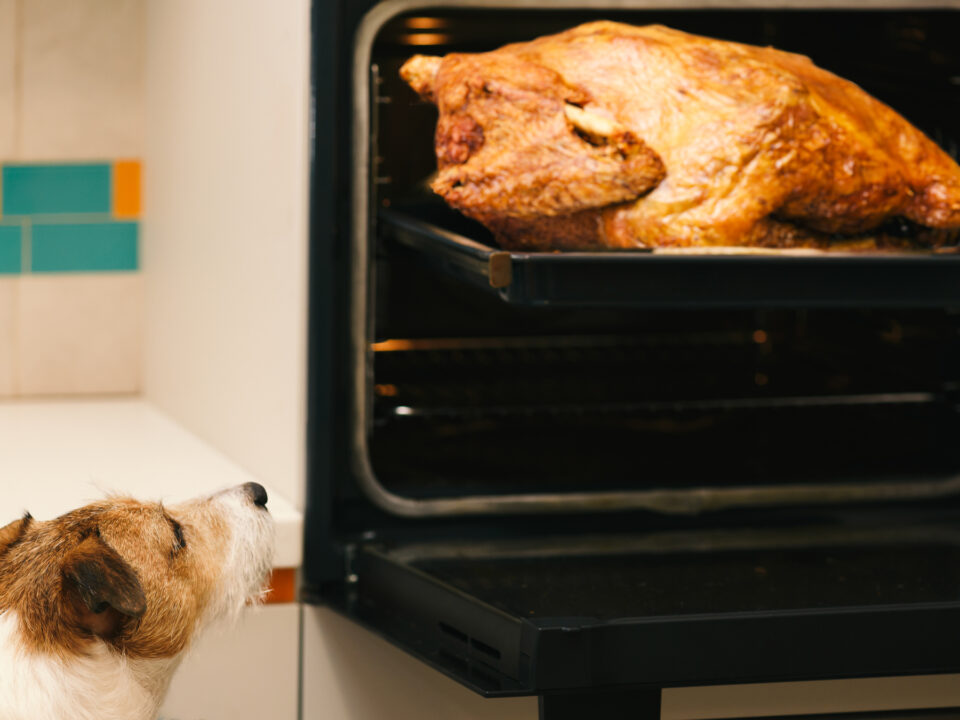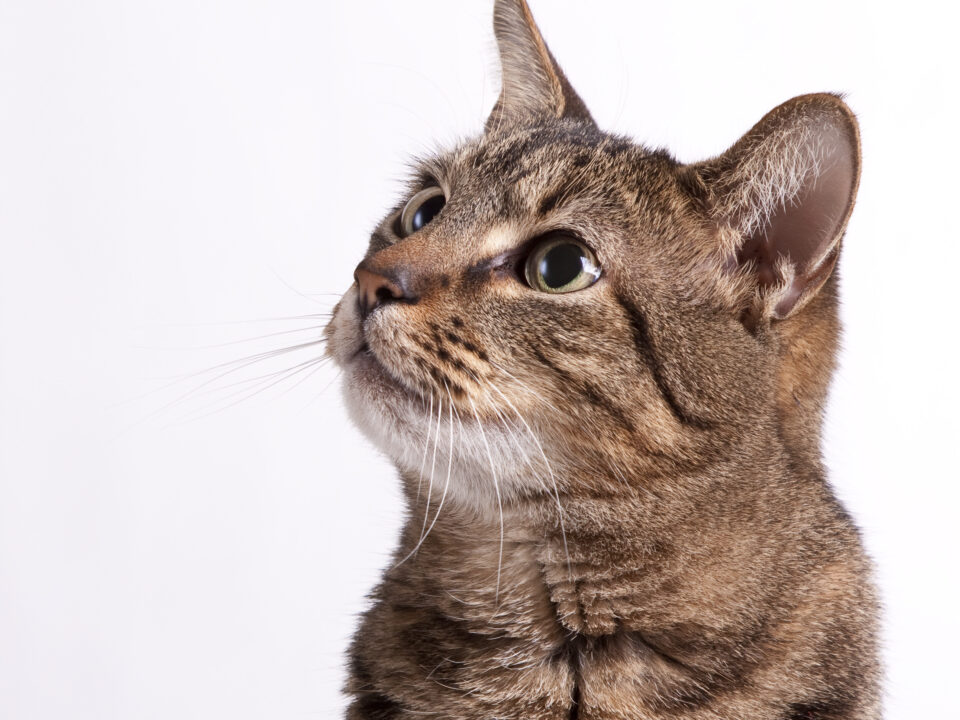Why Do Dogs Eat Grass and Vomit?

Dog Flu Symptoms in Washington Township, NJ: What to Look Out For
June 8, 2020
8 Reasons Why Your Dog is Throwing Up in Sewell, NJ
June 12, 2020Have you ever seen your dog chew on grass for a little while and then immediately throw it up again? Have you ever wondered what makes dogs do that? This behavior may seem strange to humans, but it’s very common in dogs (and cats, too). Dog owners and vets alike have often tried to figure out the underlying cause of dogs eating grass, but the behavior is still somewhat of a mystery. Even so, there are a few potential reasons why dogs engage in this odd behavior.
In this article, you’ll find out more information about dogs eating grass and vomiting afterward. By reading through the sections below, you can give yourself a better understanding of this dog behavior and determine whether or not there is any underlying issue you should pay attention to in your dog.
Psychological Reasons Why Dogs Eat Grass and Vomit
Although no one knows for sure why dogs engage in this behavior, many vets feel the reasons are psychological ones. Below, you’ll find information about some of the most common theories as to why, psychologically, dogs feel a need to eat grass, even when it makes them vomit.
Bored, Stressed or Upset
Some vets believe dogs eat grass because they’re bored, stressed, anxious, or upset about something. Some dogs are more likely to eat grass when they believe they’re alone in the backyard, which contributes to the idea that they are unhappy when they do so.
Some vets also believe dogs eat grass because it gets their owners’ attention, which is something they want. Even if they’re being told to stop doing something, dogs perceive this as attention, and it’s good enough for many of them.
In both cases, dogs generally don’t chew grass as often when their owners are outside with them.
Instincts Could Be the Cause
There may be some instinctive psychological reasons for this behavior, too. Dogs come from wild canine ancestors which ate whatever animals they could hunt, including the stomach contents of those animals.
Those contents usually included the grass the animals had been eating. It is believed that up to half of all modern wolves eat grass sometimes, whether purposefully or along with their regular diet.
Dogs who eat grass instinctively usually don’t vomit afterward. If you notice your dog chewing grass and don’t see her throw up from it, there’s not really anything to be worried about. She’s just doing what her ancestors did.
They Like The Taste of Grass
Finally, there’s one other psychological reason dogs may eat grass: they like the way it tastes. Some dogs only eat grass in certain locations or at certain times of the year, and this contributes to the idea that they like the taste and texture of the grass they chew.
And of course, there are some dogs who are more than happy to rush outdoors every chance they get and chow down on the grass in the backyard. These dogs also make it obvious that some dogs simply enjoy consuming grass regularly.
Physical Reasons Why Dogs Eat Grass and Throw Up
It may be less likely for dogs to gain anything physically from eating grass. Even so, there may still be some physical reasons that contribute to this behavior. Check out this list to see if you notice anything that could describe your dog.
Upset Stomach
Many pet owners think dogs eat grass because they have an upset stomach. This is probably because the behavior is so closely linked with vomiting.
However, it is actually difficult to tell whether or not the dog is throwing up from eating the grass, or she is throwing up because her stomach was upset and she thought the grass would help.
Vets still aren’t sure which leads to which in most situations. However, most dogs who eat grass seem completely fine beforehand, which leads vets to believe that the grass causes the vomiting more often than not.
A Dietary Response
It is possible that dogs may eat grass because they need more fiber in their diets. If you notice your dog eating grass often, especially right after a meal, she may realize she isn’t digesting the way she needs to (at least in some way).
Eating enough grass can give her the fiber she needs to process food appropriately. You may want to try upgrading your dog’s food to a high-fiber diet that includes healthy sources of the nutrients she needs.
There is a good chance a food upgrade could stop the grass eating behavior.
Stomach Problems
If your dog does show symptoms of stomach problems, she may have an issue that requires veterinary attention. If she vomits a lot—more than just once after eating grass—or she is having watery, frequent diarrhea, it’s time to schedule a vet visit.
Dogs are prone to several very dangerous stomach and digestive disorders. However, these problems can usually be easily treated by your vet.
Dogs don’t always vomit after eating grass, and some dogs never do. This may mean that there is no real connection between the two activities. Some dogs may vomit because of the strange texture or taste of the grass, rather than for any digestive reason.
Steps to Take If Your Dog Keeps Eating Grass and Throwing Up
If your dog eats grass often, even if she throws up from it, there probably isn’t much of a concern. They may be responding to a psychological need to do so.
However, you should have her checked for parasites regularly, just to be sure he/she isn’t picking up anything from consuming grass. You should also make sure they’re not allowed to chew on grass that has recently been treated with pesticides or other chemicals, as this can be very dangerous and even toxic to them.
As long as your dog isn’t getting parasites or consuming toxic chemicals from her grass eating, they’re probably fine. However, you might want to bring it up with your vet at your dog’s next regularly scheduled appointment, just to be sure there aren’t any concerns you might be missing.
Your vet will let you know if there’s anything you need to watch out for, and may also give you some suggestions for how to prevent your dog from grass eating if you want them to stop.




